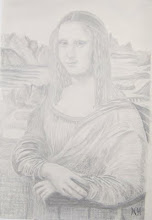(a) Or Alpha is the Fine Structure Constant 137, Richard
Feynman said: “all good theoretical physicists put this number up on their wall
and worry about it.) Immediately you would like to know where this number for a
coupling comes from: is it related to pi or perhaps to the base of natural
logarithms? Nobody knows. It's one of the greatest damn mysteries of physics”.
By explaining the Universe as a continuum based on a geometrical process of
energy exchange, this Theory explains a reason for the Fine Structure Constant
137. This process of energy exchange is formed by the spontaneous absorption
and emission of light photon energy ∆E=hf, therefore the Fine Structure
Constant is linked to the speed of light or what is called the light constant
c. Within the atom the Fine Structure Constant is also linked to the Planck
constant ħ=h/2π and the charge of the electron squared e². These three
constants form the fine structure constant and it is surprising how much
information we have to explain the Fine Structure Constant as part of a dynamic
geometrical process.
In this theory, a process of spherical 4πr² symmetry
forming and breaking forms the geometry. The speed of light c is the speed of
the process the radius of the light sphere. when light interacts with matter,
the energy level move towards the centre of the sphere with the absorption of
photon energy. The square represents a square of probability that is relative
to the spherical geometry. Because of
this, we have a geometrical constant on each side of the square as the energy
levels drop and rise. This is the Fine Structure Constant 1/137 and in this
theory, it is a different mathematical description of the Golden ratio forming
the potential for the Fibonacci Spiral.
When we
have the emission of light the electron is squared e² representing the radius
being squared because once again the process is relative to the spherical
surface. This will form the potential for another square of probability as a
new wave function radiates out forming an uncertain future.
Because of this geometrical constant, there is the
potential for these energy levels to cascade down relative to the Golden Ratio
forming the Fibonacci Spiral and Golden Angle 137.5
Link to the video that explain this interpretation
of Quantum Mechanics:
Reference: A
Reductionist Theory explaining Quantum Physics
https://www.youtube.com/watch?v=zjsd4JBp23E
We can have a reductionist theory of quantum
mechanics, by explaining the mathematics as a geometrical process that forms
the characteristics of time. Within such a theory the atoms of the periodic
table are standing waves in time with light and matter, in the form of
electrons, being waves over a ‘period of time’ with a probabilistic uncertain
∆×∆pᵪ≥h/4π future coming into existence when light interacts with the electrons
that surround the nucleus of an atom.
Light waves radiate out spherically 4πr² and when a
wave front comes in contact with the electrons of an atom it forms a photon
electron coupling that has particle characteristics. This pinches the
beginnings and the end of the light path forming spherical harmonics, just as
on a bounded guitar string, only a certain number of waves can exist. You can
have one wave, two waves, or more, but never any number that is not a whole
number. This forms a starting point of the process in the form of the Planck Constant
ħ=h/2π of action.
The wave function Ψ² that is represented by
Schrodinger’s equation forms the forward passage of time itself within an
individual reference frame. Light photon ∆E=hf energy is continuously
transforming potential energy into the kinetic Eₖ=½mv² energy of matter, in the
form of electrons. Kinetic energy is the energy of what is actually ‘happening’
the energy of motion. The dynamic geometry of this process forms an uncertain
∆×∆pᵪ≥h/4π probabilistic future continuously unfolding relative to the electron
probability cloud of the atoms and the wavelength of the light.
~





No comments:
Post a Comment